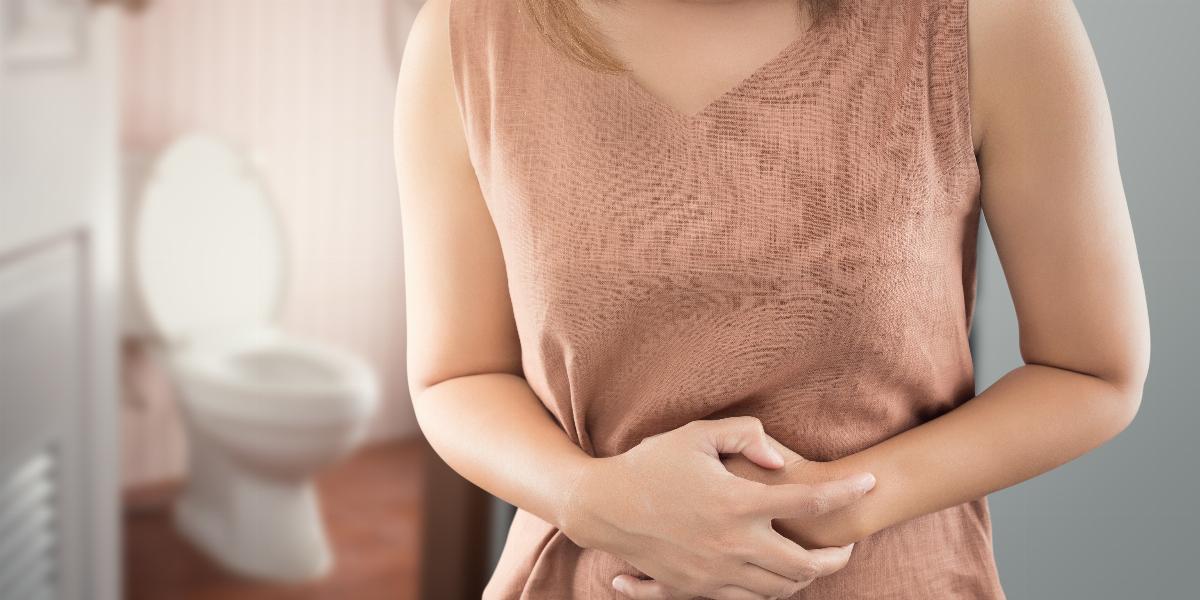Don't Let IBS or Constipation Ruin Your Day

Irritable bowel syndrome (IBS)is a fairly common disorder affecting at least 10 to 15 percent of Americans and about the same percentage worldwide. It's most prevalent among women and younger people under the age of 50. IBS is not known to cause cancer or even permanent damage to the intestines. However, it's a serious condition because it can dramatically reduce the quality of life. Social situations, traveling, and working a job away from home are often compromised. It's one of the most common disorders primary care physicians see and the most common that gastrologists diagnose. Even so, it's estimated that as few as 5 to 7 percent get a diagnosis of IBS. This is because some symptoms of IBS overlap with chronic constipation making a true diagnosis of the condition harder.
Symptoms of IBS
The most prevalent symptom of IBS is abdominal pain and is key to the diagnosis. Pain occurs in the lower abdomen or lower and upper abdomen together but is unlikely to occur in the upper abdomen alone. One-third of the sufferers will have diarrhea-predominant IBS. Stools are loose, watery, and may contain mucus. Constipation-predominant IBS is more common and affects about 50 percent. Still, others may have a mixture of symptoms that alternate between diarrhea and constipation. Other symptoms include gas, bloating, food intolerance, fatigue, and depression.
Symptoms of Constipation
Regularity is different for everyone. While some may have one or more bowel movements a day others may only "go" three times a week. The symptoms of constipation include the following:
- lumpy or hard stools
- straining to move the bowels
- a feeling of blockage in the rectum
- a feeling of not emptying all of the stool
Most everyone will have bouts of constipation, but having a bowel movement less than three times a week for three months is considered as chronic constipation which can indicate IBS.
Treatments
Chronic constipation is usually treated with diet and lifestyle changes. The doctor will first suggest eating more fiber, staying hydrated, and exercising daily. Treatment may also include laxatives such as fiber supplements, stimulants, stool softeners, or enemas.
Treatment for IBS depends on a diagnosis. Although treatments exist to detect it, most doctors use a little detective work and rule out other causes like lactose intolerance. After diagnosis, treatment begins. Doctors treat IBS with diarrhea (IBS-D) differently than IBS with Constipation, or IBS-C. Dietary changes, medication, and stress relief through behavioral or alternative therapy often give relief to sufferers of IBS-D. Doctors seek to do more than relieve bowel problems for those with IBS-C. Treatment includes soothing stomach pain and bloating. Since stress and anxiety can exacerbate symptoms in both types of IBS, behavioral therapy may be used. Alternative treatments in the form of natural remedies can help ease the symptoms of both types.
Probiotics
Probiotics are simply live bacteria and yeasts. Although bacteria are often thought of as the cause of disease, some are actually good for the digestive system. Probiotics are in certain foods like yogurt, sauerkraut, and pickles. They are also available as supplements like vitamins. Researchers are still working to figure out exactly how probiotics work. Basically, when the body loses good bacteria, probiotics help replace them. They seem to balance good and bad bacteria.
Several types of bacteria are considered to be probiotics. Most come from two main groups and have different benefits.The most common is the probiotic found in fermented foods like yogurt. Certain strains help with diarrhea and those with lactose intolerance. The probiotic found in some dairy foods help ease IBS. Doctors can determine and prescribe the probiotics helpful for each condition.
Foods That Cause/Help With IBS and Constipation
Digestive issues like diarrhea and IBS are highly affected by the daily diet. Knowing what triggers problems is a key factor in not letting either ruin a day. Most doctors will suggest keeping a "food diary" and eliminating foods that are bothersome to their condition.
The following foods may worsen IBS-C or constipation:
- breads and cereals made with refined grains
- diets high in proteins
- processed foods like cookie and chips
- dairy products, mostly cheese
- coffee, alcohol, and sodas
IBS-D may be worsened by the following:
- insoluble fiber as in the skin of fruits and vegetables
- fried and fatty foods
- food or drinks with chocolate,
- caffeine or fructose
- alcoholic beverages and sodas
- dairy products, especially for those with lactose intolerance
- foods with wheat, especially those allergic to gluten


